UN expert warns of deteriorating situation in Myanmar, urges ‘change of course’
The United Nations special rapporteur on human rights in Myanmar has voiced concern over the ongoing brutal crackdown by the military junta on dissidents, stressing that the conditions inside the Southeast Asian country have deteriorated since the February 1 coup.
“Current efforts by the international community to stop the downward spiral of events in Myanmar are simply not working” Tom Andrews told the United Nations Human Rights Council (UNHRC) on Wednesday, urging a “change of course” to prevent further human rights abuses and deaths.
The rights expert went on to say that Myanmar’s ruling military forces have murdered more than 1,100 people, detained over 8,000, and forcibly displaced more than 230,000 civilians since they seized power from the civilian government and arrested its de facto leader Aung San Suu Kyi and many of her associates.
As of July, the junta had killed at least 75 children ranging in age from 14 months to 17 years, he said, adding that it is systematically abducting the relatives of people it is seeking to arrest, when it is unable to locate them.
“I have received credible reports that junta forces have arbitrarily detained at least 177 individuals when the initial target of a raid had successfully eluded arrest. These victims include very young children as young as 20 weeks old,” he said.
Andrews further called for greater humanitarian aid for the more than three million Myanmar people who are in desperate need of assistance following the military’s takeover of the country.
“The international community must make a stronger commitment to ensuring lifesaving aid reaches those in need,” he said, stressing that the people of Myanmar need strong, targeted and coordinated action by the world now, more than ever.
Myanmar has been embroiled in turmoil since February 1, when the military seized power over accusations of voter fraud in favor of Suu Kyi’s National League for Democracy (NLD) party in elections last November.
The military placed commander-in-chief Min Aung Hlaing in power and pledged to hold fresh elections in a year and hand over power to the winner, but has not set a date.
Since the military takeover, protesters have been demanding the restoration of civilian rule and the release of the country’s politicians.
The anti-coup protests have been met with a military crackdown.
Amid the brutal crackdown, some locals, especially in townships that have seen a high death toll, have formed "defense forces" to protect the civilians.
The coup has also worsened the conflict between the country’s military and ethnic rebel groups, prompting new clashes that have displaced thousands of people.
Hezbollah attacks Israeli forces after Lebanese homes blown up
World leaders, states hail ICC arrest warrants for Netanyahu, Gallant
MP: US accountable for possible Israeli 'foolishness' to attack Iraq
VIDEO | Israeli policies strangle Palestinian agriculture, economy
Iran's president offers condolences to Pakistan over terrorist attack
Canada’s Yukon town council at standstill over refusing oath to King Charles
Yemen's Houthi calls for jihad to protect Palestine against Israel
VIDEO | Internal rifts within Israel


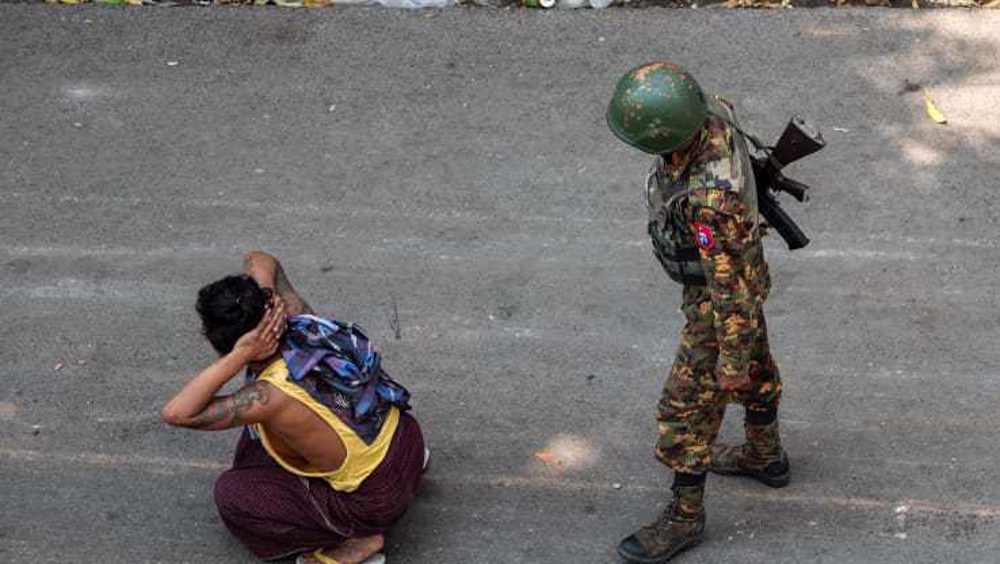
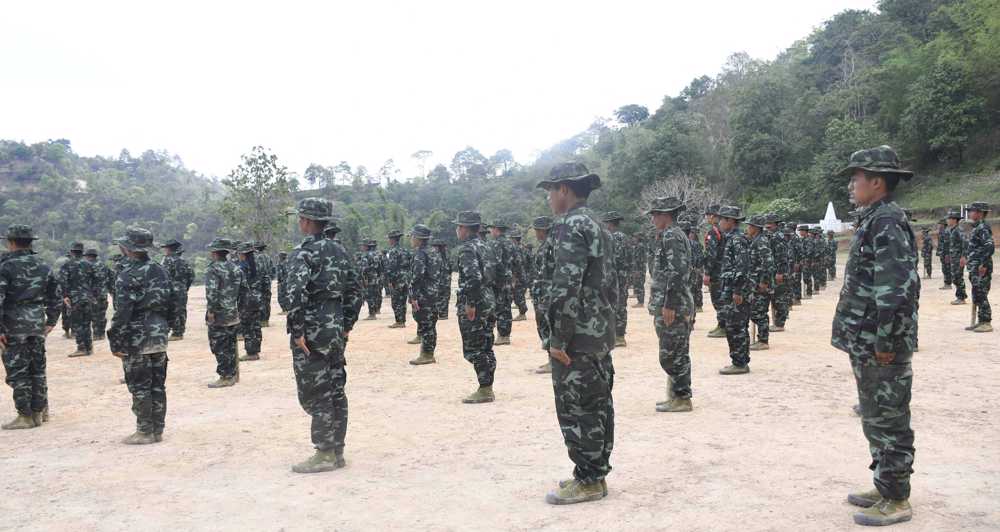
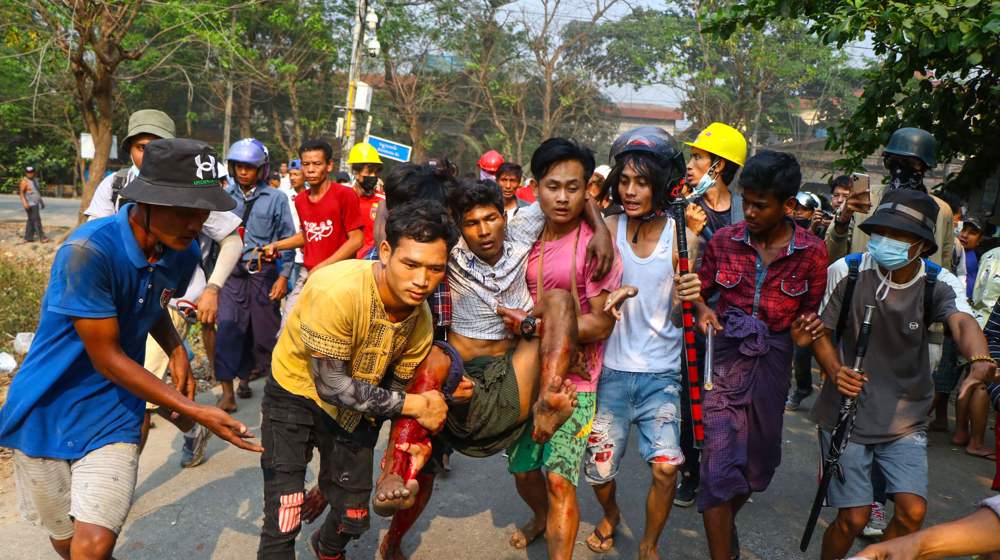
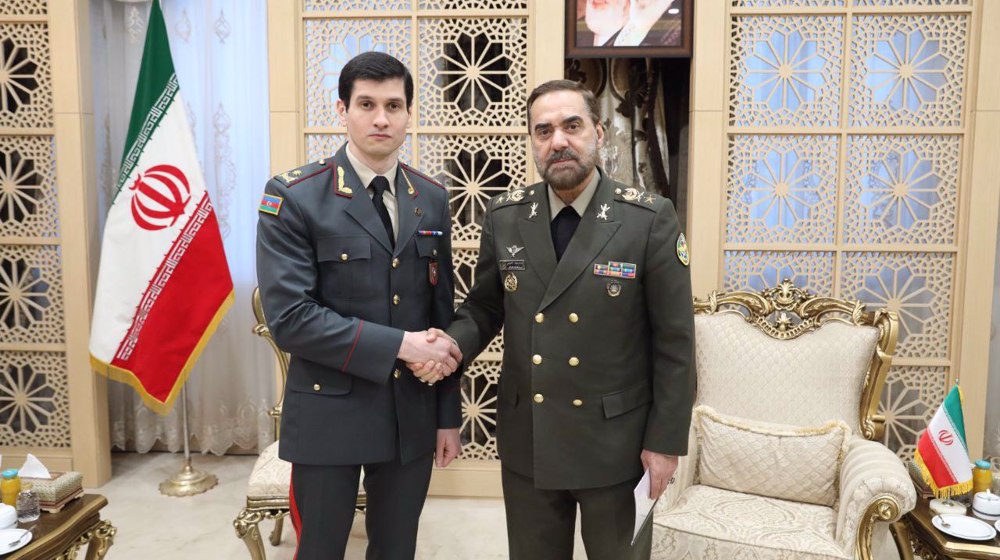





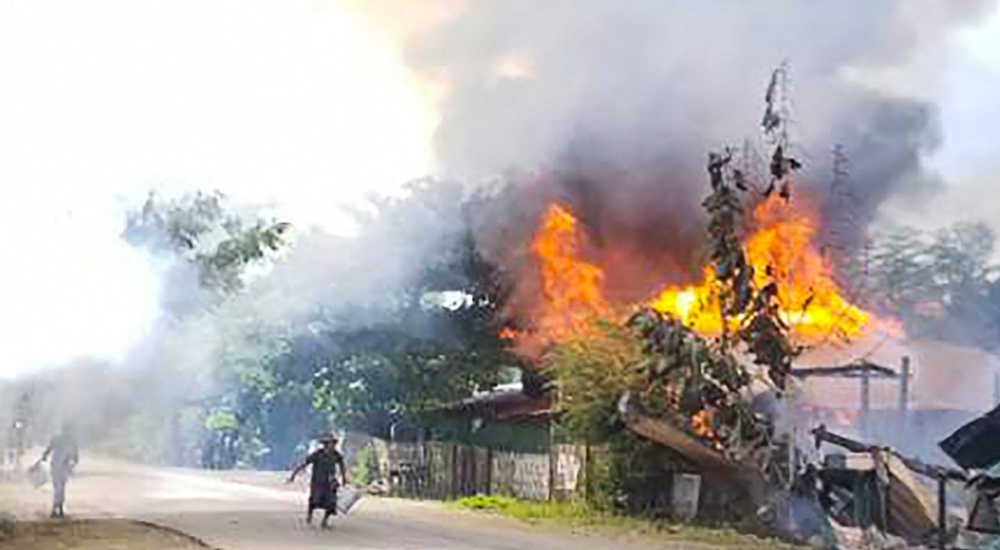
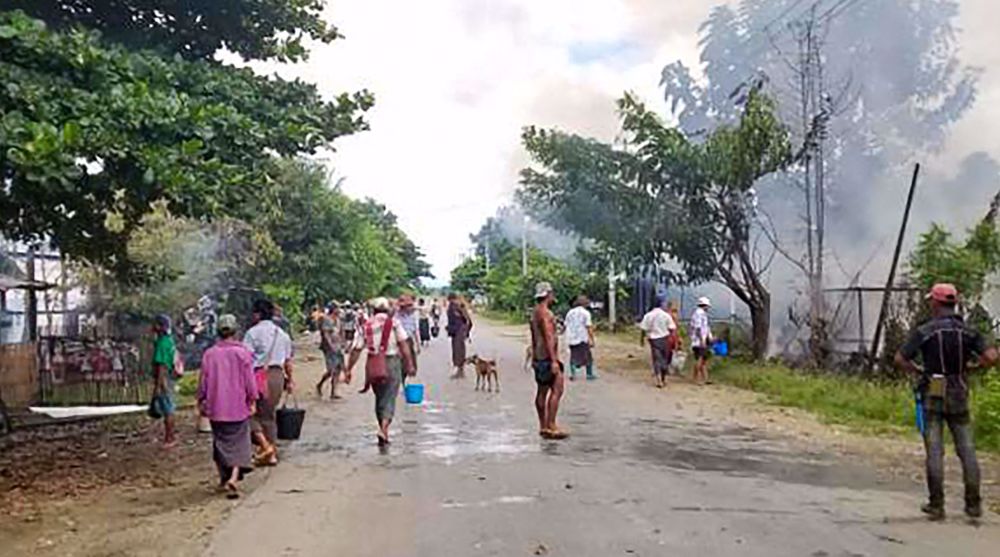
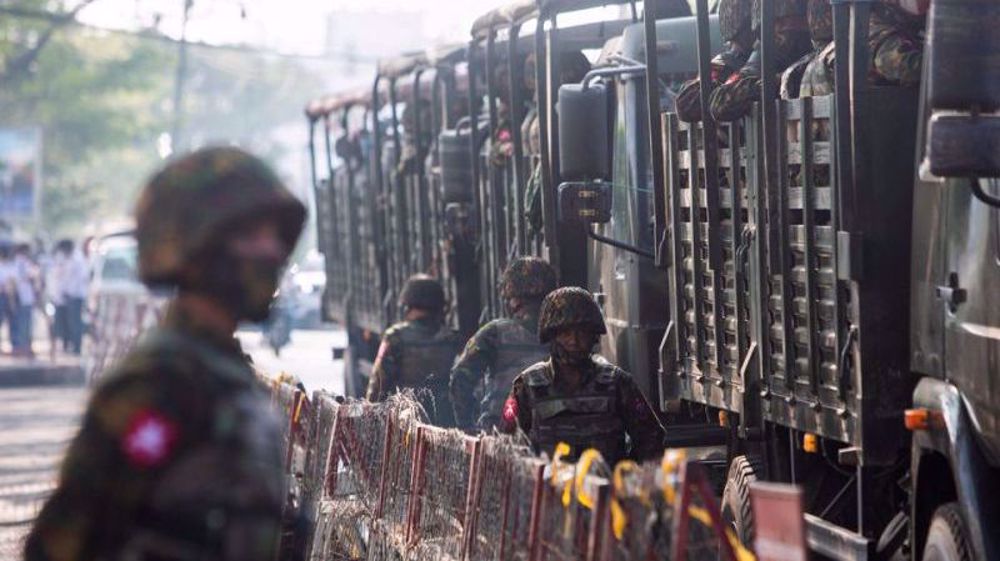
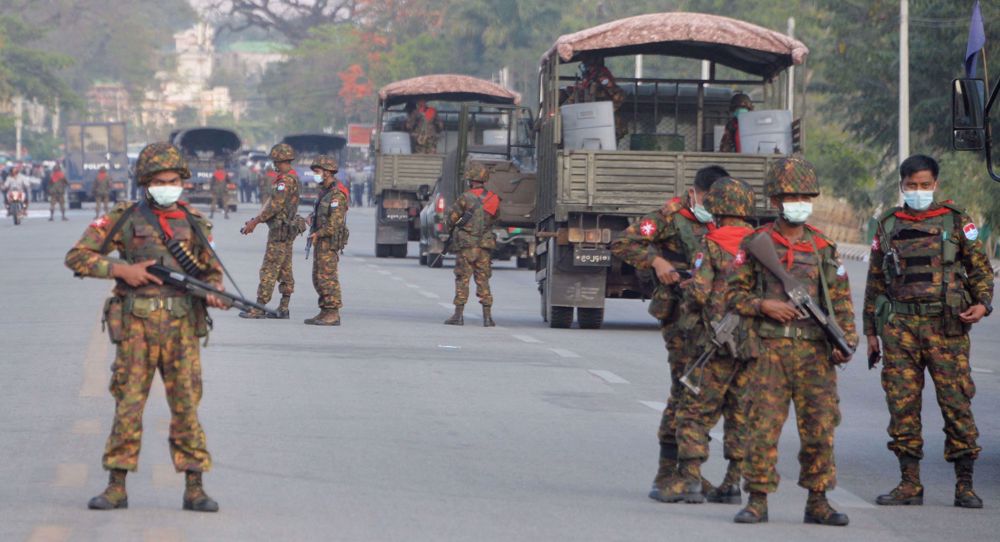

 This makes it easy to access the Press TV website
This makes it easy to access the Press TV website